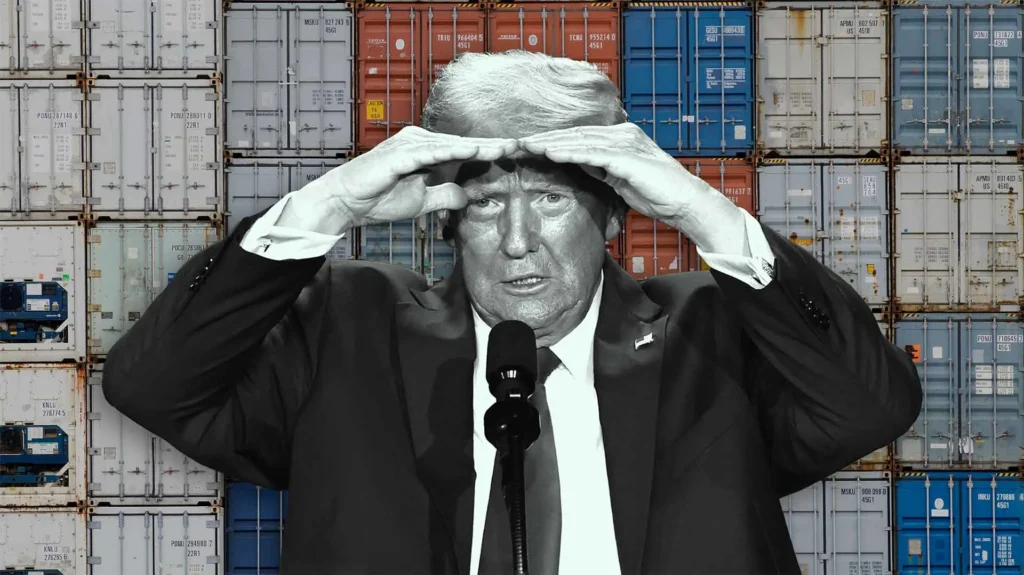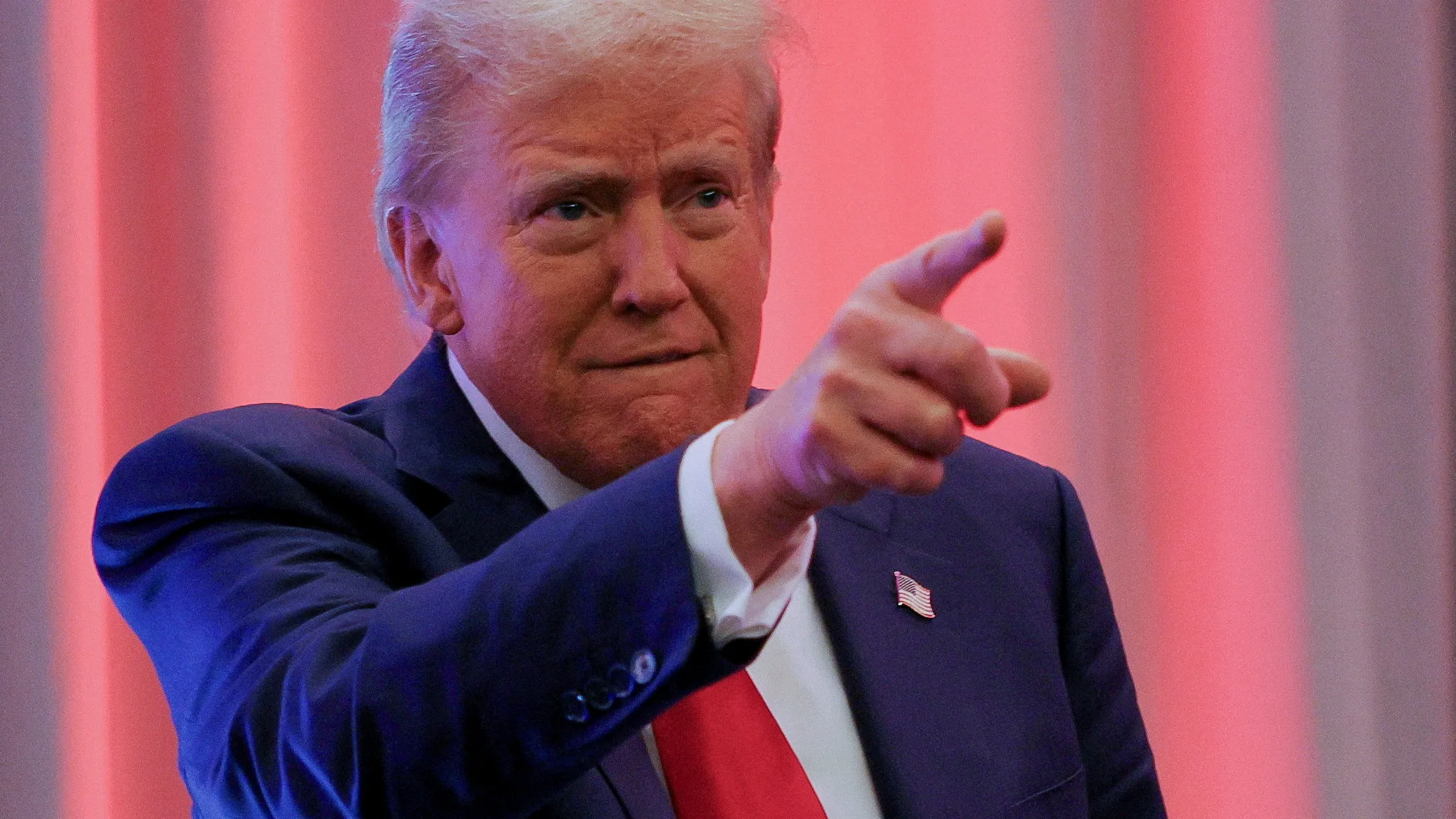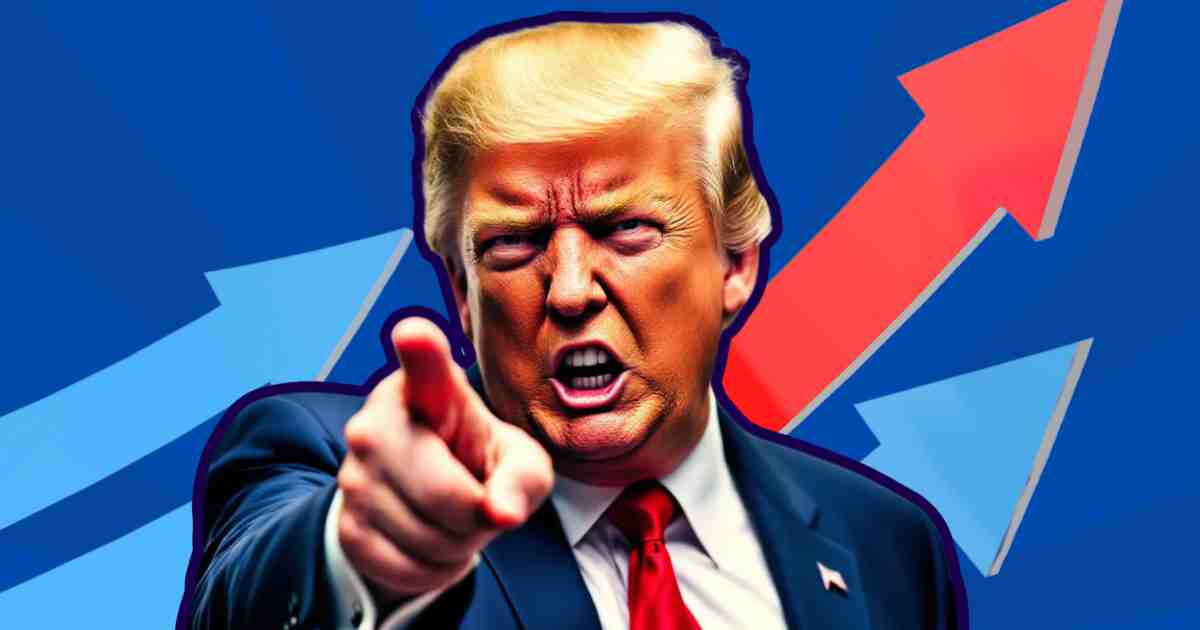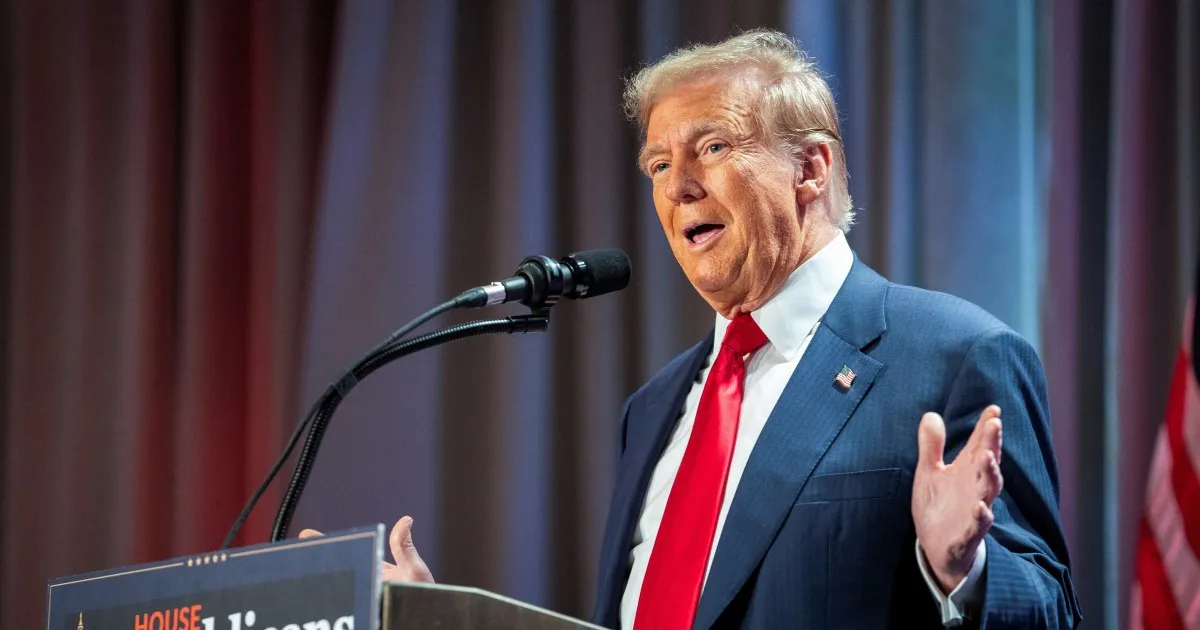
In a surprising pivot that could redefine trade dynamics, President Donald Trump has recently exempted a vital sector of the technology industry from the hefty tariffs previously imposed. This exemption, notably affecting smartphones, computers, and other pivotal electronic devices, signals a significant shift in the ongoing trade tensions primarily involving the U.S. and China.

A Game-Changer for Global Tech
The announcement, delivered aboard Air Force One, spared these essential gadgets from the 10% global tariff imposed on most countries and a steeper 125% on Chinese imports. This decision, backdated to April 5, marks the first major easing in the tariffs applied to Chinese goods under Trump’s administration, which one trade analyst heralded as a “game-changer scenario.”
As Trump promised more details to come early next week, stakeholders and consumers alike are left weighing the implications of this unexpected turn. “We’ll be very specific,” Trump assured reporters, hinting at the financial benefits of these tariffs: “As a country, we’re taking in a lot of money.”
Relief Sweeps Through Silicon Valley
The tech world breathed a collective sigh of relief upon hearing the news. Companies like Apple, Nvidia, and Microsoft, deeply integrated into Chinese manufacturing ecosystems, faced severe financial strains under the initial tariff impositions. The exemption is a lifeline, potentially averting a significant price hike for consumers and stabilizing stock markets sensitive to the tech sector’s fluctuations.
Dan Ives, the global head of technology research at Wedbush Securities, expressed his optimism on X (formerly Twitter), noting, “Smartphones, chips being excluded is a game-changer scenario when it comes to China tariffs.”

Strategic Moves Amid Economic Pressures
The White House suggests that these exemptions aim to provide American companies additional time to shift their production bases from China to the U.S. This aligns with Trump’s broader economic vision of fortifying domestic manufacturing capabilities, particularly in critical technologies like semiconductors and mobile devices. “President Trump has made it clear America cannot rely on China to manufacture critical technologies,” stated White House Press Secretary Karoline Leavitt.
Despite the reprieve, certain products will still face a 20% tariff tied to ongoing issues unrelated to technology, such as disputes over fentanyl. This nuanced approach indicates a tactical maneuvering designed to balance economic objectives with geopolitical strategies.
The Broader Implications for Global Trade
This exemption does not merely signal a temporary relief for tech giants but underscores a strategic shift in U.S. trade policies. As tensions with China persist, with tariffs on some goods increasing to 145%, Trump’s administration appears to be leveraging tariff threats as a bargaining chip to renegotiate more favorable trade terms globally.
Moreover, this move may influence tech companies to accelerate their efforts in diversifying their manufacturing strategies. Countries like India and Vietnam are already becoming attractive alternatives to China, with Apple reportedly ramping up its production capacity in India in response to the tariffs.

As the landscape of international trade continues to evolve, the exemption of key electronic goods from tariffs is a pivotal development. It not only alleviates immediate economic pressure on major U.S. tech companies but also sets the stage for potentially deeper changes in global manufacturing and trade dynamics. Whether this exemption is a temporary tactical move or part of a broader strategic realignment remains to be seen. However, it clearly demonstrates that in the arena of global trade, technology remains a critical chess piece.
